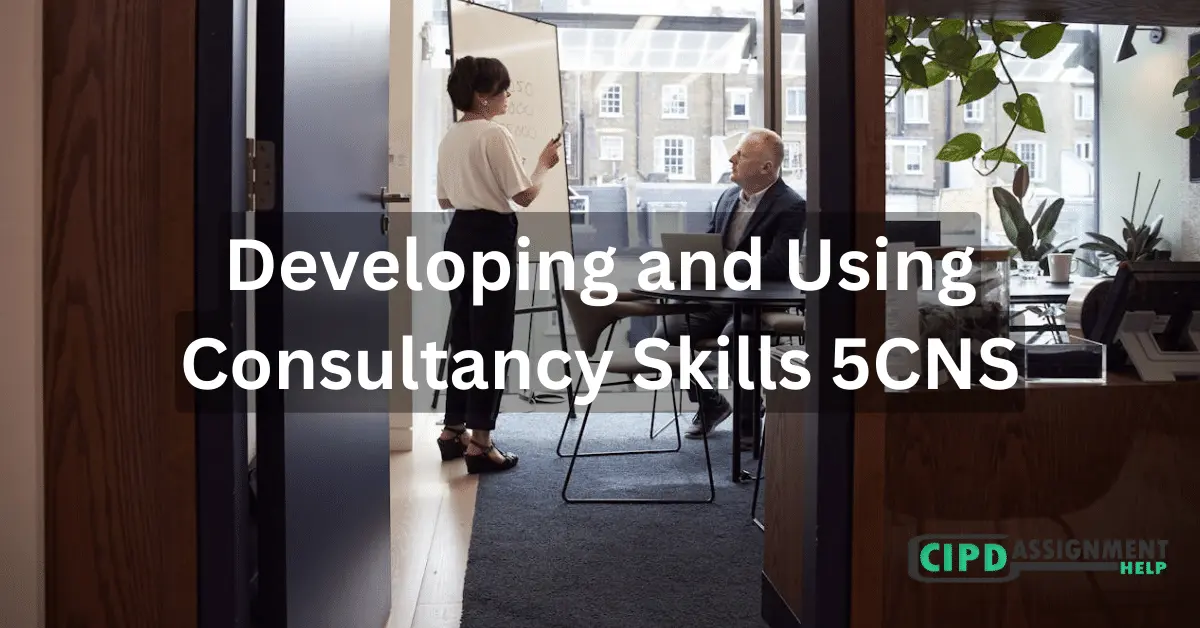
The demand for consulting skills and talents has risen in the contemporary world of economic instability and change, as firms in the public and private markets seek the most creative and economical solutions for their company prospects and/or issues.
The primary aim of this unit is to facilitate learners` comprehension of the nature of consultation and associated topics. By the end of this unit, learners should be more competent, self-assured, and able to create solutions that are specifically tailored to meet the needs of various individuals and organizations.
Experts designated for a certain role are the consultants in an organization. Consultants, as opposed to regular workers, are in charge of managing a particular requirement, either inside or outside. This is a useful unit for those who want to work in learning and development and human resources departments. Furthermore, those who would want to hone their consulting abilities have to think about enrolling in the unit.
Understanding the abilities and methods of successful consulting may also be beneficial to those in charge of promoting their portfolios of consulting work.
The objective of this unit is to:
It is important for those taking this course to realize that consultants play two different functions. Both independent contractors and internal consultants are available for employment by a company. In actuality, every consultant is an expert in a certain subject because of their own skill set. To establish rapport with customers, consultants typically possess expertise in human resources, leadership, and development. Having people skills is also necessary for issue-solving and recommendation-making. The company`s internal consultants are in charge of carrying out the suggestions. External consultants frequently travel to the workplaces of their customers, where they spend a few days conducting assessments. Based on their evaluation, an outside consultant offers unbiased advice.
We will go over the fundamental and common tasks that consultants complete in this unit, including:
By the time the unit is over, it will have defined consulting, given instances of consulting, and described the stages of consulting. The course will also provide students with a greater knowledge of ideas and concepts related to consulting. An organization may choose to use external or internal consultants. Apart from evaluating distinct consulting domains, students will also possess the ability to scrutinize the substance of consulting contracts. Additionally, the students will learn important lessons about how to establish a consulting firm in a variety of settings, such as non-profits and both public and private enterprises. Teaching students the ethical factors to consider while consulting is crucial. Learners will receive instruction on how a consulting project operates in addition to an explanation of the three steps of the consulting process. A corporation must first ascertain the demands of the enterprise before engaging in consulting. The following phase involves a consultant setting expectations, gathering and analyzing data, developing suggestions, putting the change into action, and doing a final inventory or data collection.
Including a social component is crucial for consulting to succeed. Working with a variety of individuals to arrive at a learning and development solution should be part of consulting. This subject will help learners detect problems in organizations by helping them build appropriate problem-identification abilities. Additionally, via participating in stakeholder meetings, reading papers, and conducting interviews, participants will learn how to enhance their ability to identify opportunities. One or more of a competent consultant`s fundamental competencies is the ability to defend a suggested course of action. Students will learn how to articulate their expectations and argue for low-risk alternatives throughout the course. Professionals in LD and HR are also required to report progress. Learners will discover how to report progress and what kind of reporting is suitable for each scenario throughout the exam for consultation skills. Another essential part of consulting is reporting the solution and recommendations. Finally, the unit will address the disappointments that arise in interactions between consultants and clients. The program will cover several topics, such as poor communication, irrational expectations, and disregard for little details.
When the unit is over, students will take an exam, and those who passed the course should be able to show:
The information gained after the lesson is essential for doing real-world consulting work. All practitioners in the HR and L&D fields should be proficient in consulting, as these fields rely heavily on it. Upon completion of the unit, future HR and L&D professionals will not only become proficient in effective consultation but will also get more employability. Finally, it is the learners` responsibility to acquire all the information and abilities required to perform their positions in an organization.
You can also read a sample Developing Leadership & Management Skills 5LMS.
Students ask CipdAssignmentHelp to compose the Developing and Using Consultancy Skills 5CNS unit for a variety of reasons when they visit. The quality of the work speaks for our service, not simply the cost. However, there are a ton of additional factors that contribute to our writing service`s superiority.
We are here to assist students with their questions and issues at all times online. so that they may quickly and without any time constraints ask us any questions they may have.
We are aware that colleges use Turnitin to verify the authenticity and dependability of papers submitted. We recognize that you would want to avoid the chance of turning in plagiarized content, therefore you should verify your work on Turnitin. You can thus ask us for access to Turnitin if you don`t already have it. Without charging you more, we will give you the Turnitin report in addition to your work.